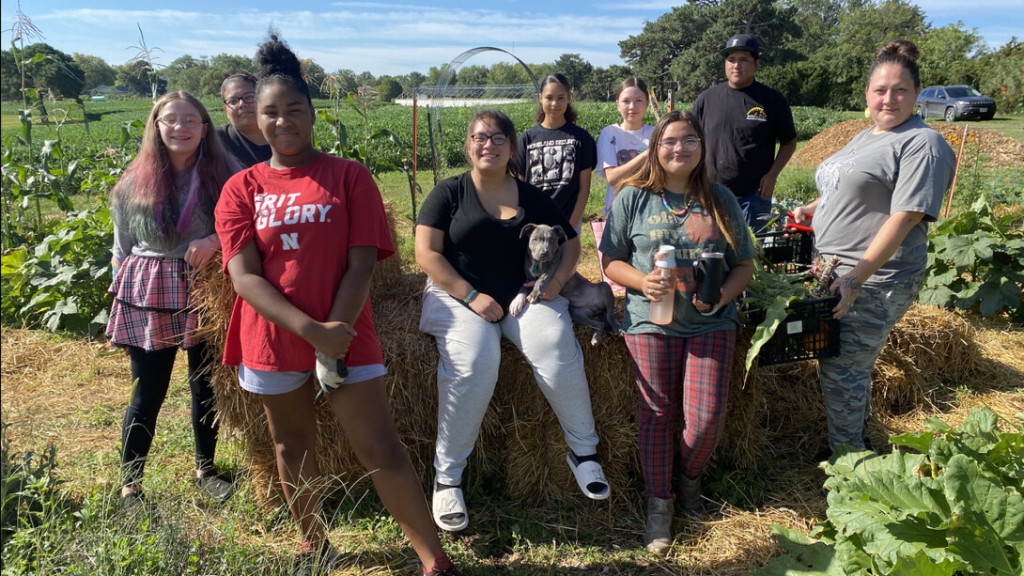Nasrin Nawa, October 22, 2024
Nebraska Extension receives $2M grant to boost Indigenous food sovereignty
A Husker-led project aims to reconnect Indigenous youth and their communities with traditional foods and agricultural practices through a blend of Indigenous techniques and modern technologies.
A team led by Bradley Barker, Nebraska Extension specialist in 4-H and youth development, has been awarded a nearly $2 million grant from the National Science Foundation for the project, which will establish teaching farms at the University of Nebraska–Lincoln and in the Navajo communities of Red Mesa and Red Valley, Arizona. The farms will provide hands-on learning experiences shaped by the youth themselves, guided by tribal elders and supported by experts from multiple universities.
The project, which began Sept. 1, will span three years.
“I am extremely excited to begin this project and look forward to co-creating with youth while learning how both Western and traditional agricultural practices can be honored,” Barker said.
Other team members include UNL’s Theodore Hibbeler, Christian Stephenson, Stacy Adams and Katie Edwards; Utah State University’s Kristin Searle, Curtis Frazier and Reagan Wytsalucy; and the Massachusetts Institute of Technology’s Emma Anderson and Ilana Schoenfeld.
The project seeks to empower Indigenous youth, ages 10 to 18, by helping them explore and strengthen their connection to traditional ways of understanding and interacting with the land. Participants will gain valuable skills for future careers in STEM while preserving their cultural heritage. The teaching farms will be equipped with tools such as seeds, soil, microscopes, sensors and structures such as high tunnels to enhance the youth’s learning experience.
“Through these farms, youth will not only learn about growing food, but also address global food sustainability challenges while staying rooted in their traditions,” Barker said. “The project also honors Indigenous food traditions, including food planning, harvesting, seed saving, preservation and distribution, ensuring that these practices are passed down to future generations.”
Participants will be supported through honorariums as they deepen their connections to the land and their communities.






